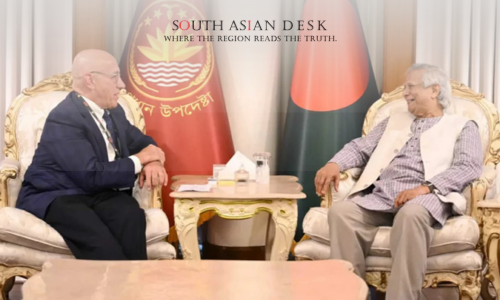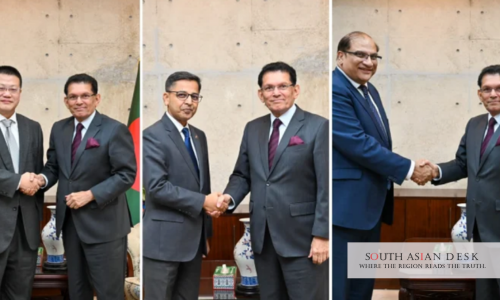Chief Adviser Yunus hopes the UN Conference will deliver concrete solutions to the protracted Rohingya crisis. Chief Adviser Professor Muhammad Yunus expressed optimism that a UN Conference scheduled for Monday, September 30, 2025, in New York will provide actionable pathways to resolve the ongoing Rohingya crisis, which has displaced over 1.2 million people in Bangladesh. Speaking during a meeting with UN Special Rapporteur Tom Andrews, Yunus highlighted the urgent need for global action to address the humanitarian and regional security challenges posed by the crisis.
Why the Rohingya Crisis Matters in South Asia
The Rohingya crisis, stemming from systemic persecution in Myanmar’s Rakhine State, has profound implications for South Asia. Bangladesh, hosting nearly 1.2 million Rohingya refugees, faces significant economic, social, and security strains. The prolonged displacement risks destabilising the region, with potential spillovers into neighbouring countries like India and Thailand. A sustainable resolution, including safe repatriation, is critical to restoring stability and upholding human rights in the region.
UN Conference: A Call for Concrete Solutions
The upcoming UN Conference, initiated by Yunus during his address at the 79th UN General Assembly in September 2024, aims to address the Rohingya crisis comprehensively. According to a statement from the Chief Adviser’s Press Wing, the conference will focus on developing a “comprehensive, innovative, and time-bound plan” for sustainable solutions, including voluntary, safe, and dignified repatriation to Myanmar. Yunus urged stakeholders to ensure the event’s success in mobilising international support and addressing funding shortfalls for Rohingya refugees in Bangladesh.
Funding Challenges for Rohingya Refugees
Yunus highlighted the impact of recent cuts in financial support for Rohingya refugees, which have strained essential services like health and education in Bangladesh’s camps. During his meeting with Andrews on Thursday, August 21, 2025, he requested continued efforts to secure adequate funding. Andrews praised Bangladesh’s leadership in keeping the Rohingya issue on the global agenda and expressed optimism about the conference’s potential to drive progress.
Regional and International Cooperation
The conference will involve key stakeholders, including the Association of Southeast Asian Nations (ASEAN), which has a critical role in facilitating dialogue with Myanmar. A UN General Assembly resolution adopted on Wednesday, November 20, 2024, by consensus and co-sponsored by 106 countries, reaffirmed support for ASEAN’s five-point consensus to expedite repatriation. Bangladesh’s Permanent Representative to the UN, Muhammad Abdul Muhith, emphasised the need for conditions enabling safe returns, noting the lack of progress over the past seven years.
Background
The Rohingya, a Muslim minority group, have faced decades of persecution in Myanmar, culminating in a 2017 military crackdown that forced over 700,000 to flee to Bangladesh. Since then, Bangladesh has hosted these refugees in sprawling camps in Cox’s Bazar, providing humanitarian aid despite limited resources. Previous UN resolutions, including one adopted by the UN Human Rights Council on Monday, July 12, 2021, have called for accountability for atrocities and urged Myanmar to address root causes, such as citizenship denial. However, repatriation efforts have stalled due to ongoing conflict in Rakhine State and Myanmar’s political instability following the 2021 coup.
What’s Next
Ahead of the UN Conference, a Stakeholders’ Dialogue on the Rohingya crisis is scheduled in Cox’s Bazar from Sunday, August 24, to Tuesday, August 26, 2025. Yunus will attend on Monday, August 25, to discuss funding, repatriation, and accountability. The outcomes of this dialogue are expected to shape the agenda for the UN Conference. With global attention refocused on the Rohingya crisis, the conference represents a critical opportunity to forge a sustainable resolution pathway.
Published in SouthAsianDesk, August 22nd, 2025
Follow SouthAsianDesk on X, Instagram, and Facebook for insights on business and current affairs from across South Asia.






